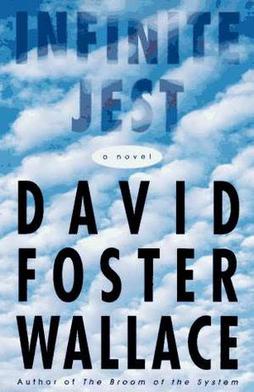 |
| Infinite Jest (Photo credit: Wikipedia) |
Miss Prism: Do not speak slightingly of the three-volume novel, Cecily. I wrote one myself in earlier days.
Cecily: Did you really, Miss Prism? How wonderfully clever you are! I hope it did not end happily? I don't like novels that end happily. They depress me so much.
Miss Prism: The good ended happily, and the bad unhappily. That is what fiction means.
From The Guardian:
Last week, backstage at the Auckland book festival, I expressed the mild view that The Goldfinch would be a vastly better novel if it lost 200 pages. And when I said 200, I obviously meant 300; I was just being polite. Someone asked if I would ever read The Luminaries, which is even longer. I explained that I’ve read it three times, because I was on the Man Booker panel the year it won. Even then, it wasn’t the longest novel submitted: that was The Kills by Richard House, which is, I think, the longest novel I have ever read at 1,004 pages long.
So I’m not sure why the book world has suddenly decided to call 2015 the year of the long novel: Jonathan Littell’s The Kindly Ones (992 pages) came out in 2010, and David Foster Wallace’s Infinite Jest 14 years before that. Perhaps it’s a marketing tool, aimed at uniting such disparate titles as Hanya Yanagihara’s A Little Life (736 pages), about the lives of four contemporary New Yorkers, and Stephen Jarvis’s Death and Mr Pickwick, whose page-count (816) matches that of The Pickwick Papers, the book whose creation it commemorates. I am tempted by both titles, but I will be holding off for the ebook versions, to preserve my already distorted spine.

No comments:
Post a Comment
We enjoy hearing from visitors! Please leave your questions, thoughts, wish lists, or whatever else is on your mind.